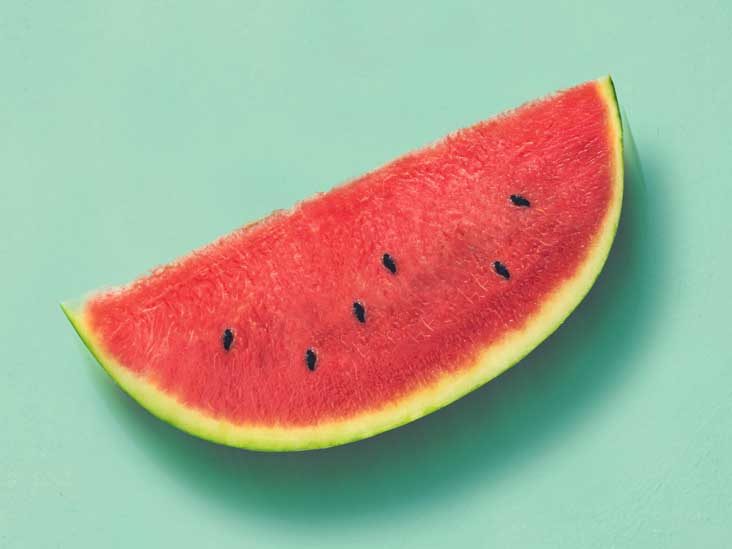Well-Being: Fitness & Diet
Benefits Of Eating Watermelon
By I.K. (staff writer) , published on November 12, 2020

Medicine Telehealth Health Watermelon
Watermelon is a sweet, tasty, low-calorie summer snack. It includes hydration and vital nutrients, including vitamins, minerals and antioxidants. There are five different varieties of watermelon: seeded, seedless, mini, yellow, and orange.
Watermelon is almost 90% water, which makes it useful for keeping the body hydrated in the summer. It can also gratify a sweet tooth with its natural sugars.
This fruit does not require any introduction, does it? It's been on our favorite list since we were teenagers, and it's going to stick ...
Health Benefits of Watermelon
Research has shown that eating a slice of watermelon every day will reduce the production of bad cholesterol, thus avoiding heart disease. Regular watermelon intake has also been related to less fatty deposits within the blood vessels.
Helps Treat Inflammation
Another key compound present in watermelon is lycopene, which has tremendous benefits. In one American study, lycopene was shown to have anti-inflammatory properties. Lycopene is considered the strongest of the various carotenoids. In fact, the protective effects of lycopene on inflammation are considered much stronger than beta-carotene, an essential carotenoid.
Keeps You Hydrated
Do you know what percentage of watermelon water is? As the name of the fruit suggests, the watermelon is 90 % water, making it one of the better sources of hydration. In spite of being a diuretic, it is much better than alcohol or caffeine. Since it is a natural source, it improves urination without triggering the kidneys.
Helps Combat Cancer
Lycopene is getting the glory, again. According to a report, lycopene in watermelons has been shown to minimize the occurrence of cancer insurgency. Lycopene is a pigment that gives melons in water their distinctive red color and, since it is a strong antioxidant, inhibits the development of many cancers.
Might Help Relieve Muscle Soreness
If you're having problems with your muscles after a workout, watermelon could hold the key. The fruit is filled with electrolytes and amino acid citrulline, which help to soothe the sore muscles following vigorous exercise. And, according to an Iranian study, citrulline in melons can help reduce muscle fatigue.
Aids Digestion
Watermelon, as we have seen, contains large quantity of water and can therefore support digestion. e It also contains fiber, which facilitates absorption and avoids constipation.
Is Good for Pregnant Women
Watermelon relieves heartburn, a common condition during pregnancy. It also tends to ease morning sickness. Minerals in the fruit can help reduce muscle cramps in the third section.
Might Prevent Macular Degeneration
As we have shown, watermelons are an excellent source of lycopene, which has been shown to reduce the risk of macular degenerative disease. According to Mayo Clinic, lycopene has been suggested as a possible therapy for eye disorders such as macular degeneration (though further studies are needed in this respect)
References
https://www.ncbi.nlm.nih.gov/pmc/articles/PMC4464475/
https://pubmed.ncbi.nlm.nih.gov/30756297/
Find articles related to: Medicine Telehealth Health Watermelon
More articles about Well-Being: Fitness & Diet
Back to the Health Tips Index




